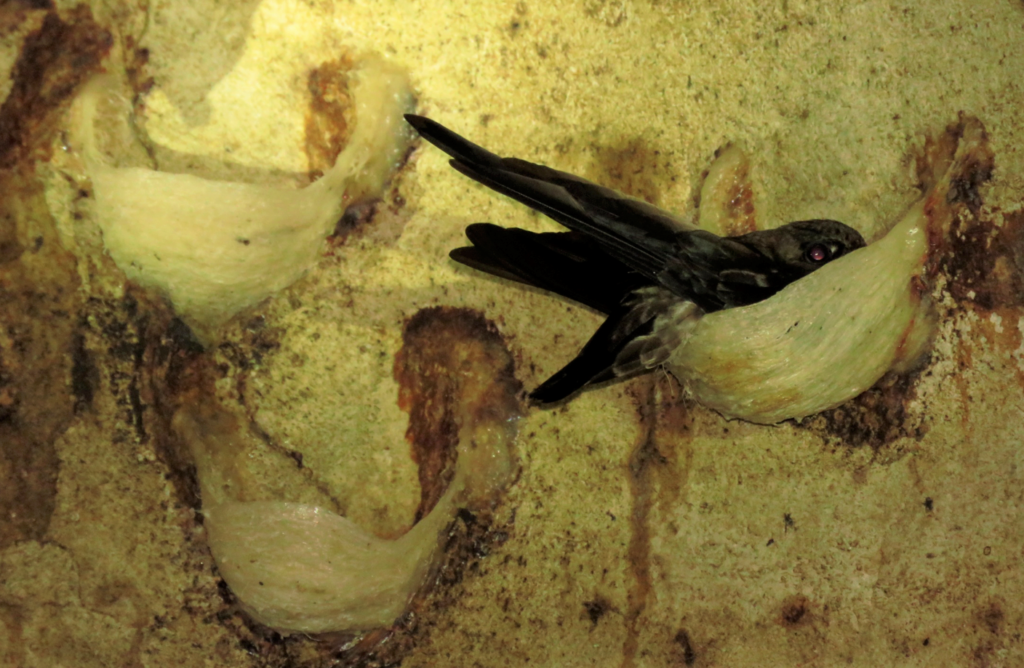When our ‘Saving Borneo’s Orangutan Corridors’ appeal soared past its £150,000 fundraising target in under two weeks, we knew there was a chance to save even more land than the strategic 10 acres already secured. Our new £300,000 target will allow our partner HUTAN to purchase and protect yet more habitat crucial to birds, such as the hornbills set to benefit from an expanded nestbox programme. Today, and to showcase the impact your donations can make for Borneo’s birds, we’re placing the spotlight on the success our partner has had with another bird species.
The area soon to be expanded thanks to our current appeal is the Pangi Virgin Jungle Reserve, where HUTAN has successfully rescued Edible-nest Swiftlets from a downfall brought about by a lucrative trade. Small as they are – bodies 14 cm long, with blackish brown backs set against lighter underparts – this swift species has spent centuries as the unwitting centre of a colossal industry. Demand for their solidified saliva nests, exported to China and beyond as a food delicacy, fueled a harvesting boom in Kinabatangan going back to the 1300-1400s; a largely sustainable activity for most of its earlier history.
Edible-nest Swiftlets use echolocation to find their way around dark caves. Credit: Nicolas Gulot
“Indigenous people had for centuries a traditional, sustainable way of harvesting nests, but in the late 1990s, the state started tendering it to private companies,” says HUTAN co-founder Isabelle Lackman. The shift meant that the sustainability element of the trade – the care to ensure not to harvest nests where babies have yet to hatch or fledge – weakened, she adds. “The breeding process was disrupted and the population collapsed. By the time we launched our programme for this species in 2010, there were only 317 Edible-nest Swiftlet pairs at Pangi.”
Swiftlets have now disappeared from two of the three limestone cave systems near Sukau. Only one – Pangi – still harbours the birds. Credit: Varial
Moved to intervene, HUTAN negotiated with the Sabah Wildlife and Forestry Departments to bring the trade back to Indigenous people; the Sukau village communities who retained the expertise and had been heartbroken to watch swiftlet populations crash. As sustainable harvesting by local hands resumed, HUTAN hired and trained 18 young villagers to guard the caves’ entrance 24 hours a day. Theft attempts of chicks-hosting nests are “constant and rampant”, Isabelle says. Meanwhile, other villagers were tasked with monitoring the swiftlet population and patrolling the forest.
The local Orang Sungai people navigate the swiftlet caves with ropes, ladders and torches. Credit: Varial
Results followed shortly: from 2010’s 317 pairs at Pangi, HUTAN counted this year 5,000+ at the same location. “With enough investment, we now believe this project has the potential to become self-funded as swiftlet numbers continue to grow, given the sustainable revenues and eco-tourism potential,” Isabelle says. “This is yet another example of how inclusive conservation does not just benefit wildlife – it can also lay the foundations for a stronger local economy.”

